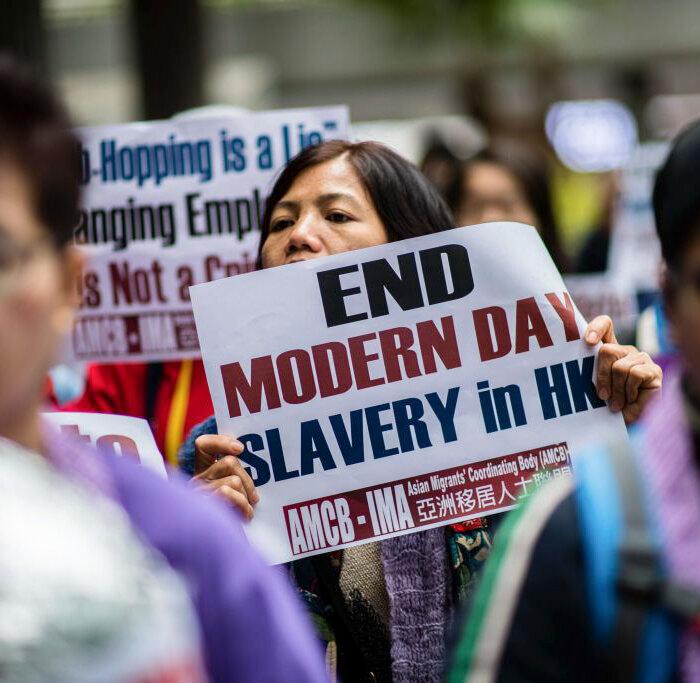Reported instances of forced labour and exploitation—when people are coerced, threatened, or deceived into working against their will—have jumped by over 140 percent since 2018-19, the Australian Federal Police (AFP) say.
The AFP blames this surge on criminal networks using deceptive recruitment tactics to lure offshore workers into Australia.
The practice means vulnerable people looking for work in Australia end up in forced labour, exploitation, and debt bondage—crimes that are all forms of human trafficking.
The AFP has received 247 reports since 2018. Dec. 2 marks the International Day for the Abolition of Slavery.
People deceived into forced labour are often forced to work excessive hours without breaks, water, or sleep and face threats of sexual assault or even death. Their communication is restricted, and sometimes, they’re the victim of physical violence.
Many are denied payment and contract access, and their visas, passports, and personal documentation are taken away.
AFP Human Exploitation Commander Helen Schneider said human trafficking victims were treated as commodities by criminals and subjected to degrading conditions for profit.
“Criminal syndicates will use deceptive recruitment tactics to target and force vulnerable individuals into these appalling situations and trap them into endless cycles of debt, forced labour or domestic servitude,” she said.
“The AFP is the lead agency in investigating this type of crime. We investigate any reports we receive, but we also urge members of the public to be vigilant and alert police to any suspicions of human trafficking offences.
“We understand it can be incredibly difficult for vulnerable people and anyone with information to come forward, but we want to assure them that help, and protection is available.”
| 2018/19 | 29 |
| 2019/20 | 29 |
| 2020/21 | 35 |
| 2021/22 | 42 |
| 2022/23 | 43 |
| 2023/24 | 69 |
| Total | 247 |
The characteristics include workers living in unsuitable places such as agricultural or industrial buildings, or in overcrowded or unsafe accommodation.
They may lack protective work equipment, and work excessively long hours.
They may also be forced to pay for tools or for costs of food or accommodation that are being unlawfully deducted from their wages and also be disciplined through “fines.”
Last Year, Reports Included Organ Trafficking
However, the issues of concern to the Federal Police extend beyond workplace-related exploitation.- 109 reports of human trafficking (inclusive of entry, exit and child trafficking)
- 91 reports of forced marriage
- 59 reports of sexual exploitation
- 21 reports of domestic servitude
- 10 reports of debt bondage
- 16 reports of deceptive recruitment
- Four reports of slavery
- Two reports of harbouring
- One report of organ trafficking
The AFP also identified increasing use of forced labour within the maritime industry after a Darwin man was charged for allegedly recruiting a crewmember to work on his fishing boat through deceptive online advertisements and holding them against their will in December 2023.
The man has been charged with a total of 44 human trafficking-type offences, and the matter is currently before the court.
The government introduced the National Action Plan to Combat Modern Slavery, which set the strategic direction of work to combat modern slavery over five years to 2025.
Victims can seek immediate assistance through the Support for Trafficked People Program, delivered nationally by the Australian Red Cross.
Once rescued, they can access the Additional Referral Pathway (ARP), which provides free support, including free legal advice and help with immediate safety and wellbeing.







